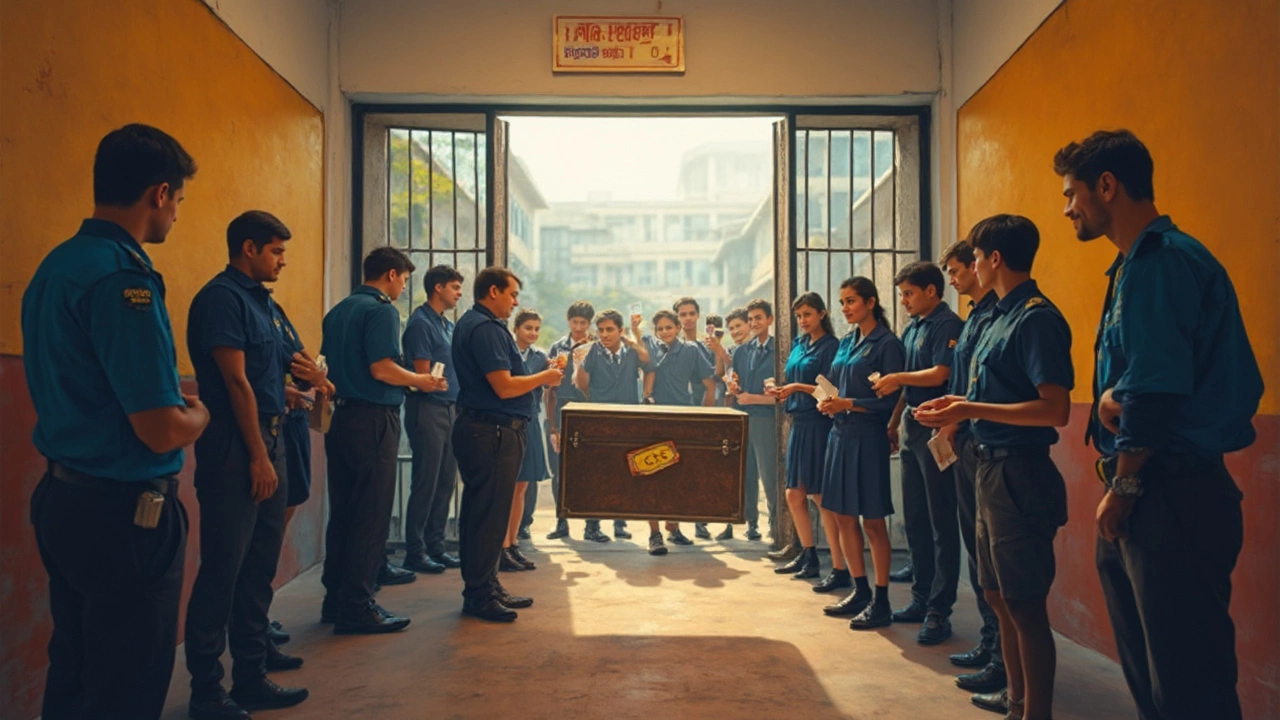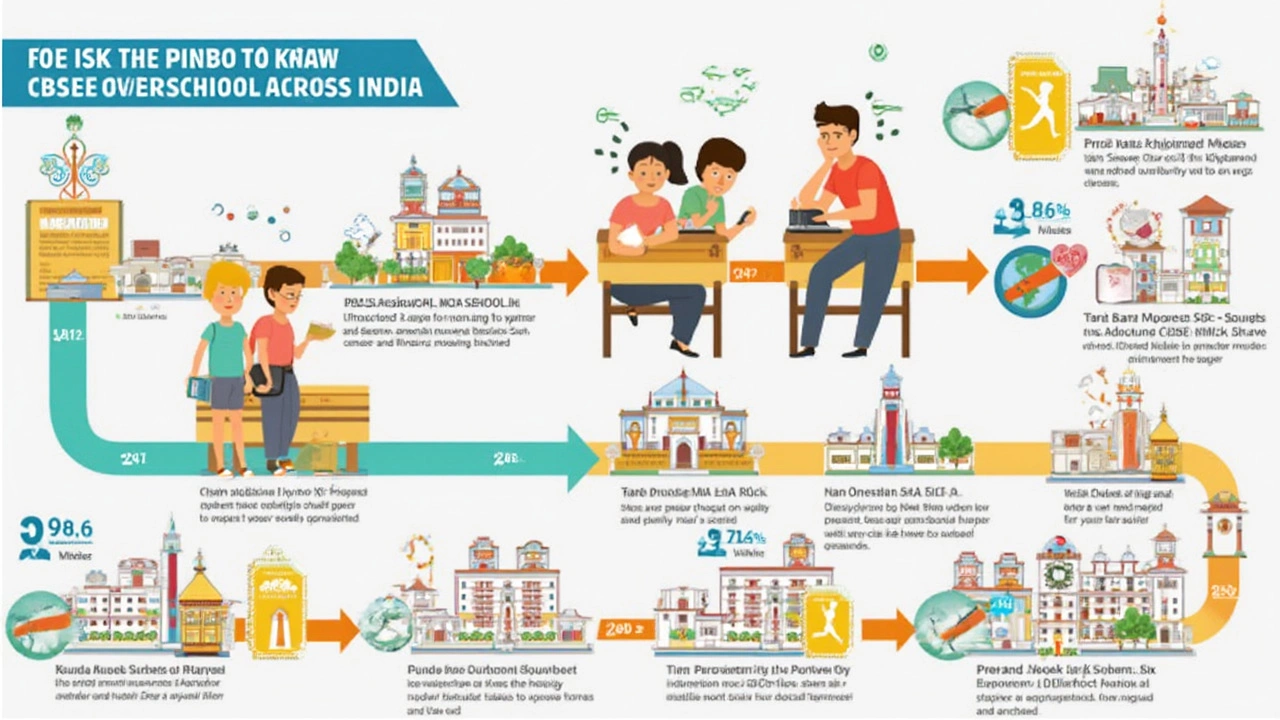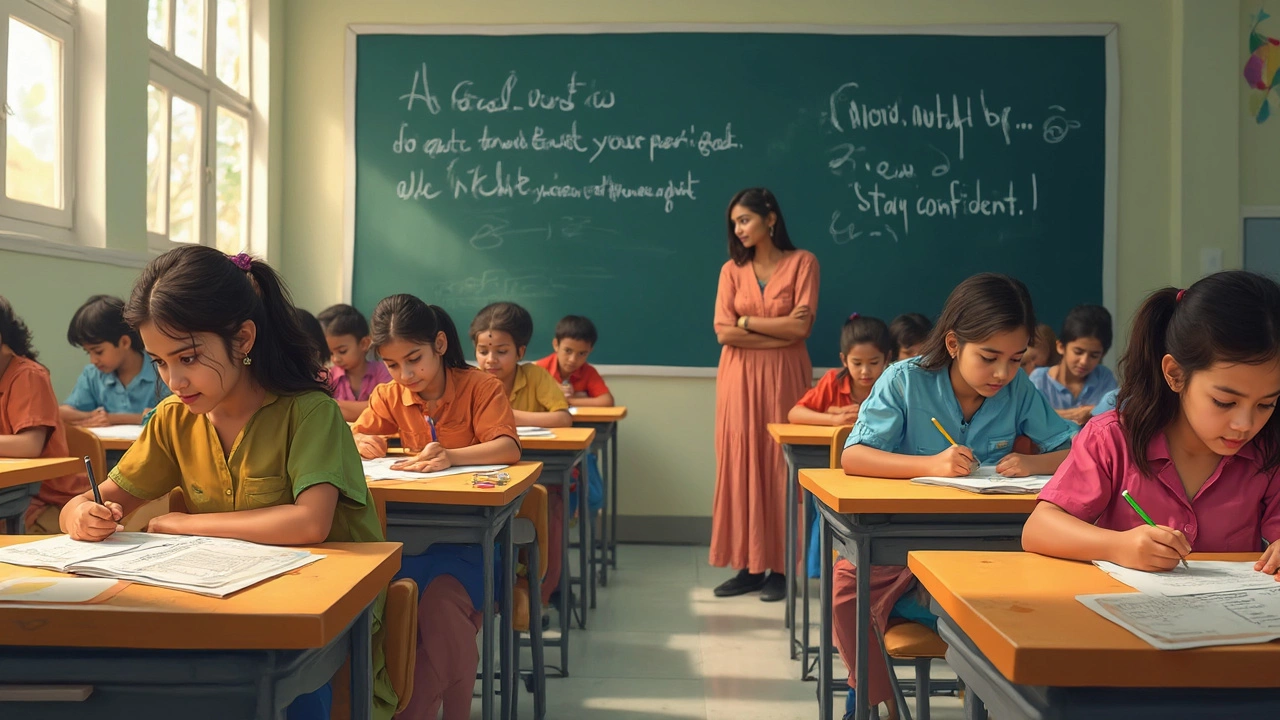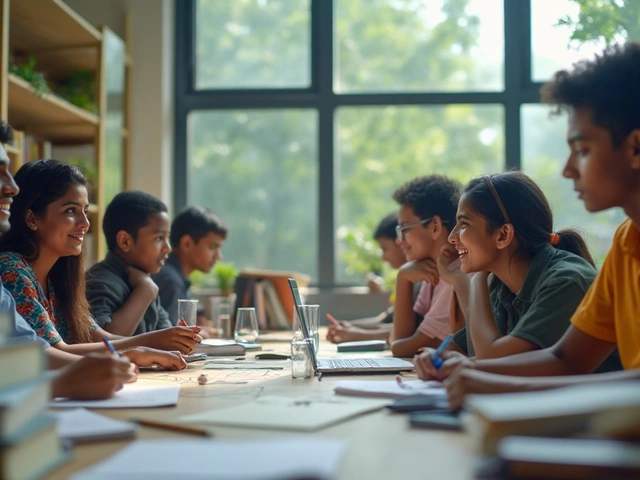
Think all your friends across India sit for the same CBSE question paper? You’re not alone. It’s one of the top things students ask, especially when exam season rolls around and everyone’s desperately chatting about what to expect on the big day.
Knowing how CBSE handles its papers can save you a lot of unnecessary worry. It can even give you a small edge over your classmates. Here’s the real story—straight from the ground, not just from rumors or WhatsApp forwards.
To answer upfront, yes, CBSE generally does set the same paper for students all over India. The process is designed so that every student, whether you’re in a big Delhi school or a small town in Kerala, faces the same questions. This keeps things fair for everyone, and the marks mean the same no matter where you gave the exam.
But there’s more to it than just one paper reaching every school. There’s a whole system that CBSE uses to make sure the paper stays secret and gets to students at the same time. If you know this, you can skip all those rumors about papers being different or easier in one region.
- Understanding CBSE Board Exam Paper Distribution
- How Secure Are CBSE Papers?
- Debunking Myths Around Regional Differences
- What Happens If There's a Leak?
- Preparation Tips for Students
Understanding CBSE Board Exam Paper Distribution
The way CBSE sends out its board exam question papers across India is actually tighter than most people think. The process leaves little room for error or leaks and is meant to put every student on an equal playing field.
Here’s how the journey of a CBSE question paper usually goes:
- First, CBSE prepares the question papers in a highly secure, secret location. The people involved are under strict monitoring, and even their phones are usually not allowed inside.
- Papers are printed and packed at these secure centers. No school or teacher gets to see these before exam day.
- Papers are then sent out to regional centers across India. Think of these as safe houses – under lockdown, 24/7 camera surveillance, and only authorized CBSE officials can get in.
- On the day of the exam, packets travel under police escort or some other form of official security to each school. Most schools receive them just a couple of hours before the exam begins.
- The question paper packets are only opened inside the exam hall, right under the watch of invigilators – never earlier.
CBSE goes high-tech about it, too. In recent years, some cities even started getting question paper sets downloaded and printed in the exam center just an hour before the exam, using special passwords. This helps cut down the risk of leaks to almost zero.
| Step | Checkpoint for Security |
|---|---|
| Paper Setting | Secrecy, no electronic devices, monitored rooms |
| Printing & Packing | Papers packed under strict official presence |
| Regional Distribution | Locked rooms, CCTV, access only to CBSE officials |
| School Delivery | Police/security escort, time-controlled delivery |
| Exam Hall Opening | Opened only in front of students and invigilators |
If you’re a student, all you really need to know is this: the paper you see is the same as what’s in front of your friend miles away, as long as you’re both taking the main exam (not compartment or improvement, those follow similar rules but are separate events).
This organized method is a big reason CBSE exams are usually seen as fair and transparent. You don’t have to stay up at night worried about someone in another state getting an ‘easier’ set of questions.
How Secure Are CBSE Papers?
The security behind the CBSE question papers is serious business. You’d be surprised by the layers that go into it, way more than just locking stuff in a cupboard.
First off, the paper setters work under strict secrecy. They’re selected by the board and names are kept confidential, even from each other. Once the CBSE question paper is created, it doesn’t travel by email or WhatsApp. It’s usually printed at secure facilities and then sealed, with barcodes and tamper-proof packaging.
Here’s a quick breakdown of how CBSE keeps its exams tight:
- Papers are printed at top-secret printing presses. No mobile phones or digital devices are allowed in these facilities.
- Sealed question papers are sent to “nodal centres” in each region, not directly to schools. There, they stay under lock and key with strong physical security—CCTV cameras, guards, and daily checks.
- On exam day, boxes are opened just before the exam, in front of two witnesses and a CBSE observer. This stops any funny business or leaks.
- If a paper gets leaked anywhere, CBSE can switch to a backup paper. Yes, there are multiple versions in the safe, ready just in case.
This table gives an idea about how early the papers arrive and how close to exam time they're actually opened:
| Step | Time Before Exam |
|---|---|
| Papers arrive at nodal centre | Up to 7 days in advance |
| Papers sent to schools | Morning of exam, a few hours early |
| Paper seal opened | 15-30 minutes before start |
No process is totally foolproof, but in recent years, CBSE keeps tightening security after any paper leak incident. In 2024, biometric checks for who opens the boxes started at some centres, making things even tougher for cheaters.
When you sit for your CBSE board exam, you can trust it’s all about a fair shot. That’s why colleges, employers, and parents put so much weight on these results—because everyone’s playing by the same rules.

Debunking Myths Around Regional Differences
There’s always some buzz that the CBSE board sends different question papers to different states or regions. Students whisper about certain zones getting “tougher” or “easier” sets. But if you’re sitting for a CBSE board exam, here’s the deal: CBSE mostly issues the exact same question paper for every location across India on the day of the exam. No secret batches hiding in some regions or mystery lenient sets for others.
Sure, there are cases where the CBSE prepares multiple 'sets' of question papers for big subjects (often marked as Set 1, Set 2, Set 3 on your paper). But don’t let this confuse you—these sets have the same overall level of difficulty and cover the full syllabus. It just means the questions are mixed up or reordered. The pattern and marks distribution are still identical. You can relax knowing your classmate in Lucknow or Chennai has the same challenge as you do in Mumbai.
Why does CBSE even bother with more than one set? It’s mainly to prevent cheating, not to favor anyone in a particular city or region. When there are different versions in a single exam center, students can’t copy answers from a neighbor with confidence. This tip alone should kill off at least half the exam rumors floating at your coaching center.
Many people also wonder if international schools that follow CBSE get a different paper. Since 2017, Delhi and other regions get the same paper, and overseas CBSE schools—like those in Dubai or Singapore—sit for the very same CBSE question paper as Indian students, just adjusted for time zone if needed. So, when someone overseas cracks the paper, it’s just as tough (or easy) as back home.
- Every CBSE paper is printed in standardized format with identical questions across India.
- Different sets keep the board exams fair—nobody is handed an 'easier' paper.
- Myths about region-based paper difficulty are just that—myths.
Here’s a quick look at how CBSE designs its question sets for subjects like Maths and Science in recent years:
| Subject | No. of Sets | Paper Differences |
|---|---|---|
| Maths | 3 | Questions reordered, same content |
| Science | 3 | Questions shuffled, same difficulty |
| Social Science | 1 | Single paper, same nationwide |
So, next time someone says the questions were easier in another region, you’ll know it’s just schoolyard talk, not reality.
What Happens If There's a Leak?
So, what if there's a leak in the CBSE board exam papers? It's the kind of thing that makes headlines, freaks students out, and sends parents scrambling for updates. Sadly, leaks have happened before. Remember the 2018 case? The Class 10 Maths and Class 12 Economics papers got leaked. It caused chaos for lakhs of kids and forced CBSE to re-conduct exams in certain areas. That's a nightmare no one wants.
When CBSE gets wind of a possible question paper leak, they move fast. Here’s what they typically do:
- Immediate Investigation: The board sets up a team to confirm if the paper available online or through sources is authentic.
- Lodging FIRs: Police complaints get filed quickly. The Cyber Cell often jumps in since leaks mostly go viral on WhatsApp and Telegram.
- Identifying the Source: Schools, exam centers, and even printing press staff are questioned. CCTV footage and call traces are part of the hunt.
- Paper Cancellation: If the leak is confirmed and affects many, CBSE cancels the exam and announces a re-exam. This happened in both Delhi and nationwide crises.
- Student Communication: CBSE uses its official website, local media, and sometimes SMS to update students directly about next steps.
Here's a quick look from recent years:
| Year | Papers Affected | Action Taken |
|---|---|---|
| 2018 | Class 10 Maths, Class 12 Economics | Re-exam held, police involved |
| 2022 | Alleged Class 12 Political Science | Rumor, no leak found |
If you're a student, don't panic if you hear leak rumors. Check the CBSE official website, not random social media stories. And don't try to get leaked papers; it's illegal and if you’re caught, you can get debarred from sitting for future board exams. Always prepare as if everything is normal, because most leaks are just rumors, and the board usually handles things quickly if something real shows up.

Preparation Tips for Students
If you’re gearing up for your CBSE board exam, you want your study plan to actually work. There’s no use getting caught up in endless guides, random YouTube hacks, or believing every wild tip that shows up in your group chat. Here are some real, practical steps that actually help.
- Stick to the NCERT books: Nearly 85% of questions—sometimes more—come straight from the NCERT textbooks. Don’t skip any diagrams, case studies, or back-of-the-chapter questions. Mark tough topics and review them more often.
- Practice with old and sample papers: The best way to get a feel for the question paper is by solving previous years’ papers and the official CBSE sample papers. It shows you the pattern, how questions are worded, and the marking tricks. Try finishing mock papers in timed conditions, just like the real exam.
- Create a daily revision timetable: Plan out your days so every subject gets covered without cramming. Give weaker sections extra time—don’t just breeze through what you already know.
- Ask teachers for ‘expected’ questions: Teachers often have a good sense of what’s likely to show up based on trends. Don’t be shy about asking them to circle the most important topics or question types.
- Keep a cheat-sheet for formulas and definitions: One pager for formulas, quick notes, and key facts helps for last-minute glancing. This simple trick means no last-minute panic flipping through the whole book before your board exam.
Surveys in 2024 of toppers showed that almost 7 out of 10 stuck to regular revision and mock tests instead of just reading chapters or notes. Want to see how that stacks up?
| Study Method | Topper Success Rate |
|---|---|
| Regular Revision + Mock Tests | 70% |
| Only Reading Notes | 20% |
| Reliance on Guides/QnA Books | 10% |
The message is clear: practice and revision win almost every time. And remember, the CBSE board exam isn’t designed to trick you with out-of-syllabus stuff. Focus on the official study material, clear your basics, and you’ll dodge surprises—even if someone claims otherwise. And if you ever feel lost, get help right away, don’t wait till the last week when stress is at its peak.





